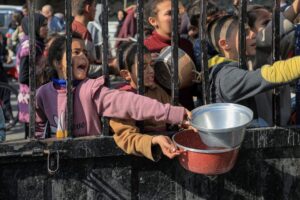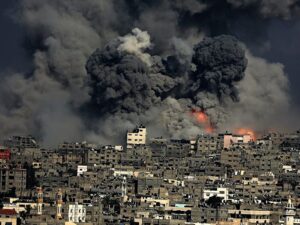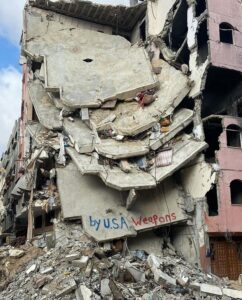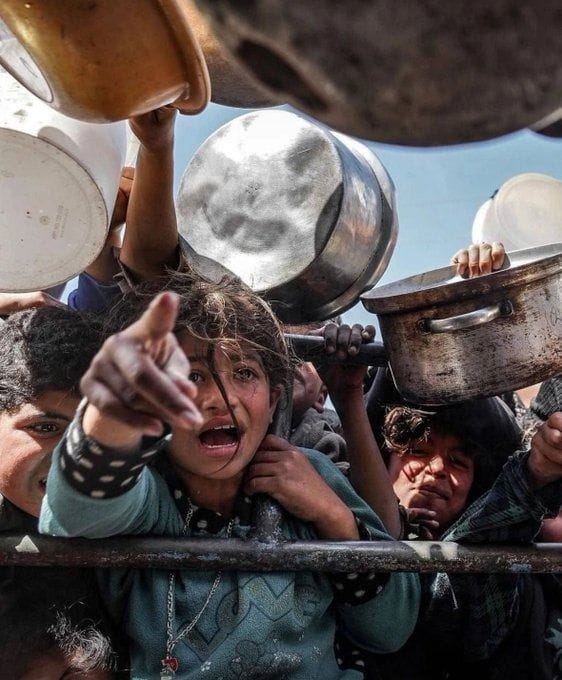40 Dead in Gaza, Many Seeking Food as UN Criticizes Israeli-Supported Relief Effort
Gaza — The sound of desperation echoed in the streets of Gaza this week. Dozens of people — children, the elderly, the hungry — gathered in the hopes of receiving food. But what started as a desperate search for relief turned tragic. At least 40 people lost their lives, crushed in a chaotic scene near an aid truck, or caught in crossfire as panic erupted.
For many in Gaza, this is no longer about politics. It’s about survival.
“People just wanted food,” said Mahmoud, a 33-year-old father who was at the scene. “No one expected to come back home with blood on their clothes instead of bread.”
The UN has condemned the Israeli-supported aid effort, saying it has not been enough — not in quantity, not in speed, and not in safety.

Hunger That Turns Deadly
As Gaza enters another month of conflict and blockade, food has become one of the hardest things to find. Lines stretch for hours outside the few bakeries that are still standing. Parents are skipping meals to feed their children. Aid, when it arrives, is a lifeline — but it’s not reaching everyone.
The tragedy that left 40 people dead in Gaza happened at one of the few known distribution points. It’s unclear exactly what sparked the panic, but eyewitnesses say the combination of hunger, fear, and overwhelming crowd numbers turned the scene deadly in seconds.
“They were shouting. People were pushing. Then there was shooting — I don’t know from where,” said Amal, a teacher who lost her cousin in the stampede. “He just wanted flour.”
UN Points Finger at Israeli-Backed Relief Efforts
The United Nations didn’t hold back in its response. In a strongly worded statement, it blamed the Israeli-supported aid operation for what it called “systemic failure.”
“This incident was preventable,” said a UN spokesperson. “People should not be dying while waiting for food. Relief efforts must be faster, safer, and better coordinated.”
Officials say red tape, security delays, and lack of proper planning are slowing down or completely blocking essential aid from reaching people. Many trucks carrying food and medicine have been stuck at border crossings for days, if not weeks.
UN Points Finger at Israeli-Backed Relief Efforts
The United Nations didn’t hold back in its response. In a strongly worded statement, it blamed the Israeli-supported aid operation for what it called “systemic failure.”
“This incident was preventable,” said a UN spokesperson. “People should not be dying while waiting for food. Relief efforts must be faster, safer, and better coordinated.”
Officials say red tape, security delays, and lack of proper planning are slowing down or completely blocking essential aid from reaching people. Many trucks carrying food and medicine have been stuck at border crossings for days, if not weeks.

More Than a Headline — A Growing Crisis
This isn’t just about the 40 people who died seeking food in Gaza. It’s about a humanitarian system that’s buckling under the weight of war and bureaucracy.
Some facts to put this into context:
- Over 80% of Gaza’s population now relies on humanitarian aid
- Only a fraction of aid trucks are getting in daily
- Only a fraction of aid trucks are getting in daily
- Medical supplies are running out as hospitals overflow
Aid workers say they’ve never seen anything like it. And many fear the worst is still to come.

The World is Watching — But Will It Act?
As news of the tragedy spreads, there are growing calls for accountability — and for urgent change.
The UN, humanitarian groups, and even some Israeli civil society organizations are demanding:
- Safe and protected aid corridors
- Better coordination between Israel and international agencies
- An immediate scale-up of food and medical deliveries
- Guarantees for the safety of civilians during aid distribution
Until these steps are taken, the fear is that more people — innocent, starving, and desperate — will lose their lives just trying to eat.
Final Words
What happened this week — 40 dead in Gaza, many simply seeking food — is more than just a headline. It’s a cry for help from a community on the edge. And unless the Israeli-supported relief effort becomes faster, safer, and more humane, that cry will only grow louder.
People aren’t asking for miracles. They’re asking for bread, water, and safety.

